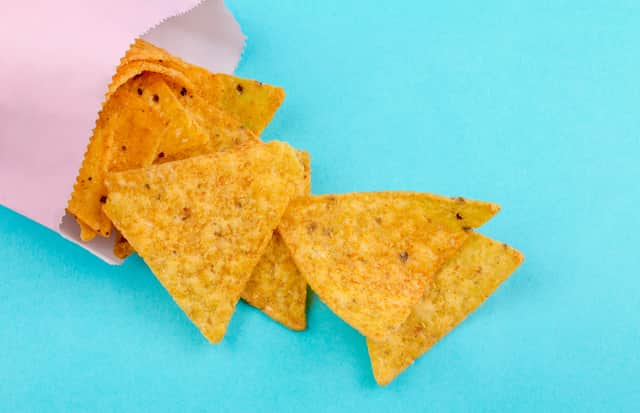TikTok Dorito theory: Users claim to have found an easy test to tell if a relationship or job is right for you
and live on Freeview channel 276
In today's world of never ending opportunities, where a new friend, a new partner, a new house or a new job could all be found with the few clicks of a button online, it's not uncommon for people to ponder if they have made all the right choices or if there could be something better out there.
TikTok claims to have found a quick and easy test to find out - and it can be applied to pretty much any life scenario, whether you are contemplating a change of career or considering if your other half really is 'the one' or not. It all centres around Doritos - but it's got nothing to do with eating the triangular salty snack.
Advertisement
Hide AdAdvertisement
Hide AdInstead, it's intended to make you think about whether that thing in your life can make you satisfied long-term or if it's actually just a quick fix. It's also the latest TikTok theory that has nothing to do with the name it's been given really. The list also includes the ketchup challenge, the orange peel theory and the mascara trend.
How does the TikTok's Dorito theory work?
TikTok's Dorito theory is based around how you feel while eating Doritos, and also how you feel afterwards. TikToker @celeste_aria says it’s to do with satiety.
“So imagine eating Doritos. When you eat a Dorito and finish your bite, you’re not fully satisfied,” she explained. “It’s not the same as eating a steak or eating really satiating food that’s high in protein, where after you bite you really feel that fullness and that warmth of satisfaction.”


As a Dorito doesn’t really fill you up, you keep reaching for the bag, hoping for an elusive sense of fulfilment, she says. It’s “this idea that the things that aren’t actually satisfying are the ones that are maximally addictive and that’s why I want them.” She adds that it doesn’t have to apply to relationship, and believes that it’s true of work, social media use, and many other “I do it because it’s good enough for now, and I’m too tired to make ‘later’ happen” life choices.
Advertisement
Hide AdAdvertisement
Hide AdIn essence, nobody chooses to eat Doritos because they know they will fill them up completely, instead they choose them because they are quick, easy and convenient and they will 'fill a hole' and keep hunger pangs at bay for a little while longer. They are also, of course, really tasty. But, in the longer term, you will still need to eat something else to feel completely full and happy.
Who knew crisps could be a metaphor for something so important? The concept seemed to resonate with many TikTok users who took to the comments. One said: "You can never get enough of something you don’t need." Another claimed that the theory perfectly explained "situationships", where two people are romantically involved in some way but have not declared themselves in an official relationship.
One person said: "That’s why I’m addicted to online shopping", while another reflected: "The irony of Dorito theory being explained/ presented while scrolling through tiktok, is not lost on me."
Comment Guidelines
National World encourages reader discussion on our stories. User feedback, insights and back-and-forth exchanges add a rich layer of context to reporting. Please review our Community Guidelines before commenting.
